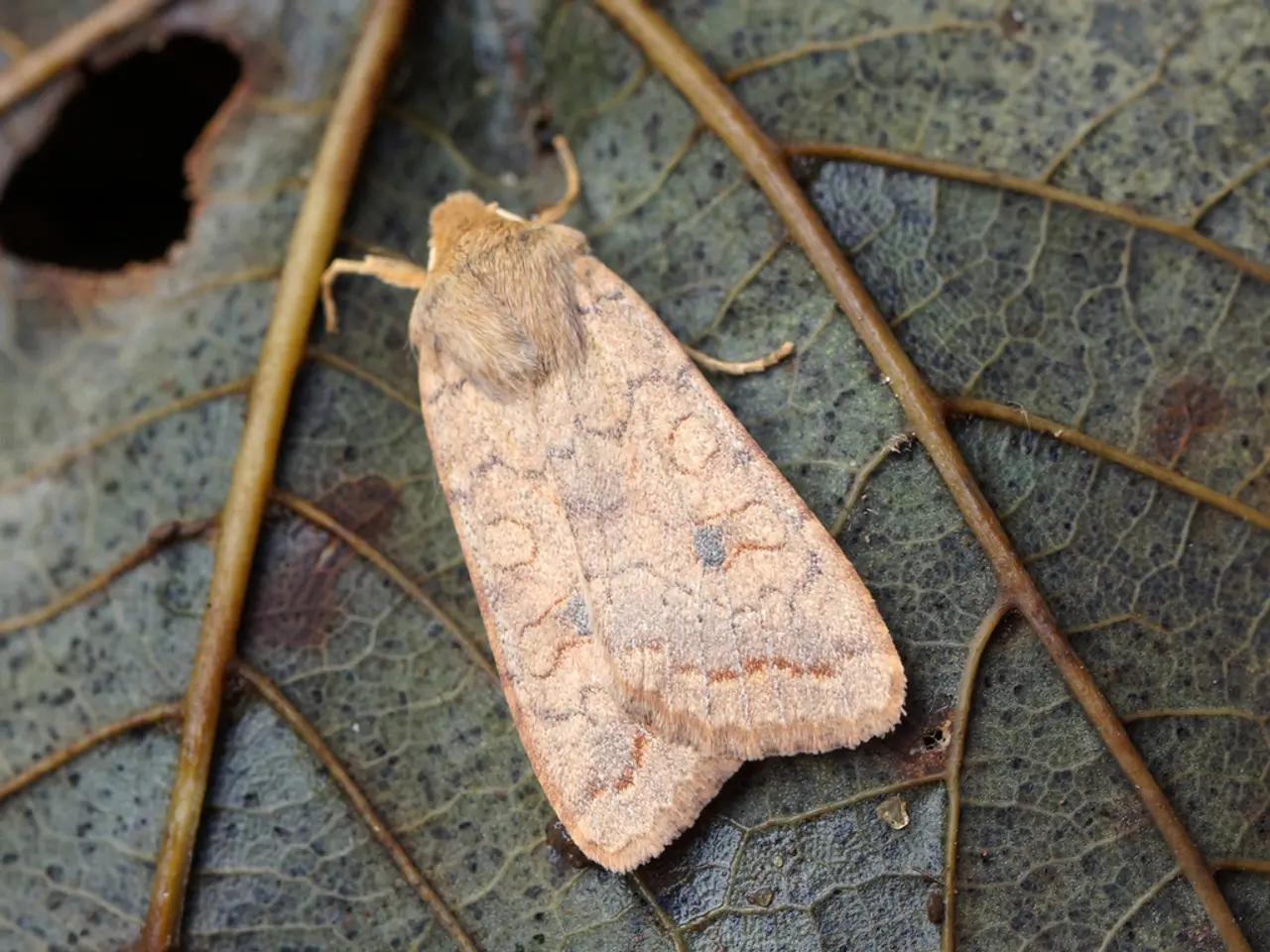Eliminating Aphids Organically in Your Garden and Home Interiors
In the world of gardening, aphids are one of the top 10 common problems faced by both indoor and outdoor plant enthusiasts. These tiny pests can wreak havoc on your beloved greenery, leaving leaves wilted, sickly, and discoloured. But fear not, for there are several natural methods to get rid of aphids without resorting to harsh chemicals.
Hydrogen Peroxide, a water molecule with an extra atom of Oxygen (H2O2), is one such ally in the fight against aphids. A 3% hydrogen peroxide solution is safe for human skin but lethal to most bugs, making it a great disinfectant for plant pots, greenhouses, and grow rooms. When used as a foliar spray, it can keep plants healthy and free from bugs.
Aphids, attracted to a variety of flowers such as zinnias, cosmos, marigolds, dahlias, sunflowers, daisies, and calendula, can be found in groups, often on the undersides of leaves or the growing tips of plants. They exude a sticky honeydew trail that attracts ants.
To effectively get rid of aphids on indoor plants using natural methods, the best approach combines physical removal, natural sprays, and habitat management.
- Spray aphids off with water: Use a strong spray of water targeting the undersides of leaves where aphids hide. This knocks them off without chemicals.
- Use insecticidal soap spray: Make a natural insecticidal soap by mixing mild liquid soap (Castile soap recommended) with water, sometimes combined with vegetable oil, and spray the affected plants. This suffocates aphids without harming plants.
- Garlic spray: Crush garlic cloves, soak in water overnight, and spray this on plants. It repels aphids by making plants unappealing, without killing the insects or harming the plants.
- Physical removal: Manually squish aphids or prune heavily infested leaves to reduce their population.
- Improve airflow and reduce plant density: Trim and space plants to limit aphid hiding spots and make the environment less hospitable.
- Avoid toxic sprays: Tobacco-based sprays may harm good insects and spread viruses and are not recommended.
A detailed routine could be:
- Inspect plants and remove heavily infested leaves.
- Rinse plants in a sink or with a water spray to dislodge aphids.
- Apply insecticidal soap spray every few days until aphids diminish.
- Use garlic spray additionally as a repellent.
- Maintain airflow and reduce overcrowding.
All materials used (soap, garlic) are safe for indoor use and will not harm pets or humans if used as directed. This natural integrated approach balances pest control without chemicals.
Remember, ladybugs love eating aphids, and attracting aphid-eating birds can also help control the population. Composting plants attacked by aphids can be done, but dropping them in a pile of soapy water before adding to the compost pile ensures they are dead.
With these natural methods, you can keep your indoor plants healthy and aphid-free, creating a harmonious environment for both you and your greenery.
- By using a 3% hydrogen peroxide solution as a soil drench, you can foster a healthier environment for your indoor plants, promoting their growth and reducing the likelihood of aphid infestations.
- As part of an organic lifestyle, incorporating decorative elements like flowering plants such as petunias, snapdragons, and primroses in your home-and-garden can help attract beneficial insects like ladybugs, which consume aphids.
- When planting vegetables in your garden, consider adding compost to the soil, enriching it for healthier roots and stronger stems, allowing plants to better resist aphid attacks.
- In your gardening routine, include regular checks for signs of aphid infestations, especially on sensitive plants like lettuce, broccoli, and roses, and address them promptly using natural methods.
- To create a harmonious garden lifestyle, nurture your passion for gardening not only through tending to your plants but also by educating yourself on organic and sustainable methods for pest control, such as the use of beneficial insects and careful soil management.




